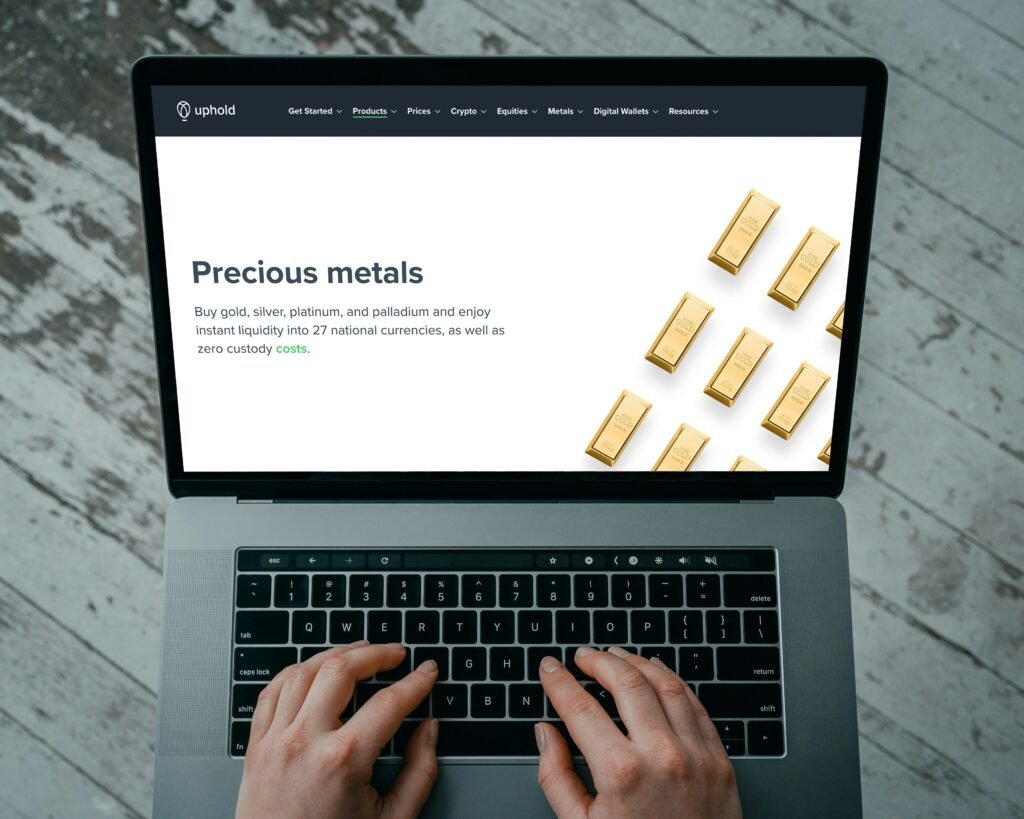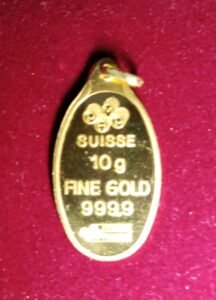Introduction to Investing in Precious Metals
Investing in precious metals, particularly gold and silver, has garnered considerable attention from both seasoned investors and newcomers alike. These metals are universally recognized as valuable assets, primarily due to their intrinsic properties and historical significance as forms of currency and wealth preservation. Over the years, gold and silver have proven to be reliable stores of value, often maintaining their worth even during economic downturns.
One of the primary benefits of investing in gold and silver is wealth preservation. Unlike fiat currencies, which can be subject to devaluation and inflationary pressures, precious metals tend to retain their purchasing power. Many investors utilize these assets as a hedge against inflation, believing that as the cost of living rises, so too will the value of gold and silver. This characteristic makes them particularly appealing during periods of economic uncertainty, where traditional investments may falter.
Moreover, incorporating precious metals into an investment portfolio can enhance its overall diversification. By including gold and silver, investors can reduce their exposure to market volatility associated with stocks and bonds. Precious metals often move independently of other asset classes, which provides a buffer during market fluctuations and can stabilize returns over time.
The trend of buying gold and silver online is also on the rise, with many investors opting for digital platforms for their convenience and accessibility. Online marketplaces offer a wide variety of products, from physical coins and bullion to exchange-traded funds (ETFs) that track the performance of these metals. This shift toward e-commerce in the precious metal market reflects broader changes in consumer behavior and investment strategies, as individuals seek efficient, secure methods for acquiring valuable assets.
The Different Forms of Gold and Silver You Can Buy
When considering an investment in precious metals, it’s essential to understand the various forms of gold and silver available for purchase. Each form has its unique characteristics, advantages, and potential drawbacks, making it important for investors to select the one that aligns with their objectives.
One of the most common forms is bullion coins, which are produced by government mints. Popular examples include the American Gold Eagle and the Canadian Silver Maple Leaf. Bullion coins are typically valued based on their metal content and are highly recognizable, often making them a preferred choice for new investors. They also come with a standard purity and weight, which can assure buyers of their value. However, premiums over spot price can vary significantly.
In addition to coins, bullion bars represent another investment option. These bars, typically produced by private mints, come in various sizes, from one ounce to several kilograms. Their primary advantage is lower premiums over the spot price, making them a cost-effective choice for bulk investors. However, buyers should ensure the bars are accredited, as not all private mints have the same reputation. Additionally, bars may lack the liquidity of coins, which can be important in making timely sales.
Rounds are another alternative, resembling coins but not issued by a government mint. They often have the same weight and purity as bullion coins but typically come with lower premiums. Collectible coins, on the other hand, hold numismatic value beyond their metal content and can appeal to specific collectors. While they can yield a higher return, they also involve greater risk due to market fluctuations based on rarity and demand.
In summary, understanding the different forms of gold and silver enables potential investors to make informed decisions tailored to their financial strategies and risk tolerance. Each option carries unique benefits and risks that should be carefully evaluated.
Identifying Reputable Online Dealers
When venturing into the world of online precious metal purchases, identifying reputable online dealers is crucial to safeguarding your investment. The integrity of the dealer has a significant impact on the overall experience. Firstly, conducting thorough research is essential. Start by looking for online reviews, which can provide a wealth of information on a dealer’s reputation. Websites such as Trustpilot, Better Business Bureau (BBB), and dedicated precious metal forums can offer insights into customer experiences and ratings.
Additionally, checking for certifications and credentials can further validate a dealer’s trustworthiness. Ensure that the dealer is a member of recognized industry organizations such as the Professional Coin Grading Service (PCGS) or the Numismatic Guaranty Corporation (NGC). Affiliations with these bodies often suggest adherence to high ethical standards and practices, which can help assure buyers regarding the dealer’s credibility.
Investigating customer feedback is another vital step. Take the time to read both positive and negative reviews to gain a balanced perspective. Pay close attention to comments about product quality, delivery time, and customer service. A consistent track record of favorable reviews may indicate a reliable dealer who values customer satisfaction. Conversely, frequent complaints about delayed shipping or poor communication may serve as red flags.
Moreover, consider a dealer’s return policy and guarantee of authenticity. Reputable online dealers usually offer clear return policies, allowing customers to return purchases if they are dissatisfied or if products do not meet specified standards. A return policy not only protects your interests but also signifies confidence in the quality of the products offered. In conclusion, investing time in research and vetting online dealers is a prudent approach to ensuring a secure and satisfactory purchase experience in the realm of gold and silver.
Understanding Market Trends and Pricing
The prices of gold and silver are subject to constant fluctuations influenced by a myriad of factors, including economic indicators, market demand, and geopolitical events. Understanding these market trends is essential for anyone considering investing in these precious metals. Economic indicators such as inflation rates, interest rates, and overall economic growth can significantly impact the valuation of gold and silver. For instance, rising inflation often leads investors to seek the safety of precious metals, driving demand and consequently increasing prices.
Market demand plays a pivotal role in the pricing of gold and silver. As both industrial applications and jewelry manufacturing drive the need for these metals, any change in demand can directly affect their prices. In times of economic uncertainty, there tends to be an uptick in purchases of gold and silver as safe-haven assets, while surges in industrial demand can boost silver prices more than those of gold, given its diverse applications.
Geopolitical events also contribute to the volatility of gold and silver prices. Tensions or instability in key mining regions can reduce supply, thus pushing prices higher. Additionally, global crises tend to increase the appeal of these metals as secure investment options. Investors should stay informed about international developments, as these factors can lead to rapid price changes.
To make informed purchasing decisions, potential buyers can utilize various tools and resources available online. Websites that track the current prices of gold and silver, along with mobile applications that provide real-time alerts on price movements, are invaluable. Subscribing to financial news outlets or following expert analyses can also help investors gauge market trends effectively. By understanding these dynamics, those looking to invest in gold and silver can navigate the market with greater confidence and make better purchasing decisions.
Checking for Secure Payment Options
When engaging in the online purchase of gold and silver, it is essential to prioritize secure payment options. Various online dealers accept a range of payment methods, and understanding these can significantly influence both the safety and efficiency of your transaction. Commonly accepted payment methods include credit cards, PayPal, bank transfers, and increasingly, cryptocurrencies.
Credit cards are often favored due to their built-in fraud protection, allowing buyers to dispute charges in case of any discrepancies. It is advisable to ensure that the online dealer’s website is secure, indicated by “https://” in the URL, before entering sensitive information. Additionally, utilizing virtual credit cards can add an extra layer of security, limiting potential exposure to fraudulent activities.
PayPal provides a widely trusted option that offers buyer protection policies, which can be beneficial in circumstances where items are misrepresented. For those who opt for bank transfers, it is crucial to confirm that the dealer is legitimate. Unlike credit card payments, bank transfers typically do not include fraud protection, which makes it essential to double-check the dealer’s credibility before proceeding.
Another emerging method of payment is cryptocurrencies, which offer anonymity and secure transaction protocols. However, this payment option may not be widely accepted by all dealers and usually entails a steeper learning curve for new users. When utilizing cryptocurrency, it is vital to understand the risks, including price volatility and the irreversible nature of transactions.
Regardless of the payment method chosen, ensuring secure payment protocols through reputable platforms significantly mitigates risks associated with online transactions. It is advisable to review customer feedback and conduct thorough research about the dealer’s reputation to safeguard personal and financial information effectively. Only by selecting secure payment options can buyers confidently navigate the gold and silver market online.
Insuring Your Precious Metal Purchases
When purchasing gold and silver, the importance of insuring these precious metals cannot be overstated. Insuring your investment is crucial for safeguarding against potential loss, theft, or damage. The value of gold and silver can fluctuate, and having insurance adds a layer of security that can provide peace of mind to investors. Without proper coverage, the financial loss incurred due to unforeseen circumstances may significantly impact your portfolio.
When contemplating insurance for your gold and silver purchases, there are several aspects one should consider. First and foremost, it’s essential to determine the type of coverage needed. Generally, there are two primary options: replacement cost coverage and actual cash value coverage. Replacement cost coverage allows you to replace your items at current market value, while actual cash value coverage accounts for depreciation. Depending on your investment strategy and the quantity or worth of your holdings, the choice of coverage type can influence both premiums and the eventual payout in case of a claim.
Another factor to examine is the insurance provider’s expertise in precious metal investments. Not all insurers have experience in this niche market, and selecting a provider that specializes in covering valuable items such as gold and silver can streamline the claims process and ensure adequate support. Some well-known companies that offer insurance specifically for precious metal investments include Lloyd’s of London, AIG, and Chubb, among others. These providers understand the unique considerations and risks associated with non-standard assets, making them a valuable resource for investors.
In conclusion, taking steps to insure your precious metal purchases is a prudent decision. By evaluating the type of coverage needed and selecting a specialized insurance provider, you can effectively protect your investment, ensuring that you are safeguarded against potential losses in the future.
Storage Options for Your Precious Metals
When it comes to storing gold and silver, selecting the right method is crucial for ensuring both security and peace of mind. There are several options available, each with its unique advantages and drawbacks. Home storage, bank safety deposit boxes, and third-party vault storage represent the primary choices for safeguarding your precious metals.
Home storage is perhaps the most straightforward option, allowing immediate access to your gold and silver. This method provides flexibility and control, as you can easily manage your inventory from the convenience of your own space. However, it also comes with increased risk, as storing significant amounts of precious metals at home could make you a target for theft. Furthermore, homeowners’ insurance often does not cover the full value of your gold and silver, necessitating additional coverage or security measures to mitigate risks.
On the other hand, using bank safety deposit boxes can offer a higher level of security. These boxes are typically housed in secure facilities, monitored by security personnel, providing peace of mind for those reluctant to keep their investments at home. However, access to your precious metals may be limited to bank operating hours, which might not align with personal schedules. Additionally, the costs of rental for these boxes can accumulate over time, adding to the total expense of storage.
Third-party vault storage is another increasingly popular option, particularly for investors with larger holdings. These services specialize in the secure storage of precious metals and often provide insurance coverage, thereby reducing risk significantly. While the initial costs might be higher compared to the other methods, they can offer peace of mind that comes with professional management and security. When selecting a storage option, it is essential to weigh the pros and cons of each method against your security preferences and investment goals to make an informed decision.
Legal Considerations When Buying Gold and Silver Online
Investors contemplating the purchase of gold and silver online must navigate a range of legal considerations to ensure compliance with applicable laws and regulations. One pertinent aspect to consider is taxation. Generally, gold and silver purchases are subject to capital gains tax when the metals are sold for a profit. The current U.S. Internal Revenue Service (IRS) guidelines classify precious metals as collectibles, leading to a higher capital gains tax rate compared to other assets. Therefore, it is crucial for investors to maintain meticulous records of their purchases, costs, and the sale of these metals to accurately report earnings on their tax returns.
Regulatory frameworks also play a vital role in the online transaction of gold and silver. The government imposes strict regulations aimed at preventing money laundering and illicit activities. Precious metal dealers may be required to register with the Financial Crimes Enforcement Network (FinCEN) and adhere to its guidelines. This affects not only physical transactions but also the online platforms facilitating these purchases. Buyers should ensure that any online dealer they consider is licensed and follows regulatory guidelines to guarantee the legitimacy of their investments.
Additionally, reporting requirements cannot be overlooked. In certain cases, large cash transactions may trigger reporting obligations for the seller. For instance, purchases exceeding $10,000 may require dealers to file a Currency Transaction Report (CTR) with the IRS, signaling this transaction to authorities. Investors must be aware of their obligations, both as buyers and as participants in the trading process, which may include reporting transactions to the IRS under certain thresholds.
In conclusion, understanding the legal implications of buying gold and silver online is essential for any investor. By familiarizing themselves with taxation, regulatory compliance, and reporting requirements, buyers can navigate the complexities of precious metal investment prudently and avoid potential pitfalls that could lead to legal troubles or financial losses.
Conclusion and Final Tips for Safe Online Purchasing
In the realm of precious metals investing, purchasing gold and silver online presents both opportunities and challenges. Throughout this guide, we have explored essential strategies to ensure a safe and successful buying experience. As the demand for gold and silver continues to rise, understanding the intricacies of the online market becomes paramount for any investor.
First and foremost, due diligence is crucial. Before finalizing any transaction, prospective buyers should thoroughly research dealers, verifying their reputation and trustworthiness. Reading customer reviews, checking for industry certifications, and reviewing ratings from credible sources can provide valuable insights into a seller’s reliability. Additionally, checking if the seller offers a clear return policy can serve as a safeguard against potential dissatisfaction after the purchase.
Remaining informed about market trends is equally important. Investors should keep track of fluctuations in gold and silver prices as well as economic indicators that may affect these commodities. This vigilance helps you make well-timed purchases, enabling you to capitalize on favorable market conditions. Many investors also find it beneficial to follow expert analyses and updates, as these can offer guidance on when to buy or sell.
Security is another crucial aspect of online purchasing. Buyers should only engage with secure platforms that employ robust encryption technology. Look for websites with HTTPS in their addresses and read their privacy policies to understand how they protect your personal and financial information. Utilizing payment methods that offer buyer protection, such as credit cards or PayPal, can also enhance the security of your transaction.
By incorporating these final tips and remaining vigilant, you can navigate the online marketplace for gold and silver with greater confidence, ensuring a safer and more informed purchasing experience.





